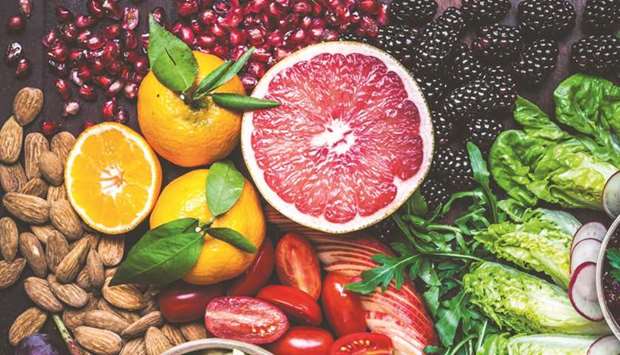
By Reem Abdulrahman Jassim al-Muftah
I am constantly asked ‘what food is best to eat’ and ‘how to manage one’s bodyweight when it comes to eating,’ but what I’m rarely asked is, ‘what kind of food should I be eating to increase my nutritional intake?’ That’s why I hope you all to start thinking about the types of food and the corresponding quality of each food item you purchase, use and eat. So, what is the ideal diet for increasing your nutritional intake, ensuring you are consuming a well-rounded and balanced diet and improving your overall health? Focusing on ‘real food.’ So what’s real food? When food is:
1- Close to its original source as possible.
2- Grown or raised in conditions that maximise nutrient density.
3- Fresh produce and in season, not grown off season with intervention.
4- Food is minimally processed and looks as close as possible to its natural form.
5- When it comes to dairy and meat, grass-fed is ideal or the most original state the animals graze or feed.
6- Less labels, less preservatives, less chemical ingredients and more real ingredients.
According to many nutritionists, real food is basically food made with the simplest of ingredients, close to its natural state and form as possible and not processed in a way that strips the food of its nutrients. I’ve talked about how people follow fad diets or follow certain food lifestyle trends and how that is not the best way to find your custom and ideal diet or to be aligned to your biology, lifestyle and goals.
Think about it, what does real food really mean in terms of food quality and ingredients… Here’s a general list:
1- Fresh, in season fruits and vegetables
2- Organic, grass-fed meat (poultry, meat, seafood)
3- Organic eggs
4- Nuts and seeds
5- Legumes
6- Whole and non-stripped grains
7- Raw ingredients
Now stop and look at the list you just read, think about the food you eat on a daily basis and compare. Do you feel that you are on the right track or do you feel that maybe you have gone in a different direction with your diet choices and maybe need to get back on the track of real food? It’s all about mind over matter and of course, prioritisation. If you are in tune with yourself and are continuously thinking of your health then you make the time for it, including physical activity but most importantly, taking the time to make sure you are eating well. Get back on track by actively engaging your mind when making your next food decision. What does that mean? Start internally discussing these matters with yourself as you make these choices. For example, when grocery shopping, make sure you’re increasing your options of the natural food sources and options that are less processed. Actually look at the ingredients and nutrition facts. While ordering food, go for the meals that include fresh and in-season fruits and veggies, less processed ingredients and more natural raw ingredients that will still have their nutrients fully intact. Try to stay away from processed grains such as white flour and refined sugar. Most importantly, keep real food snacks around, to munch on between your meals, that follow the criteria of the same list.
Let’s keep in mind that many people have allergies, intolerances or medical conditions in which they cannot eat certain foods, which is completely normal. Some people don’t have the acquired taste for certain flavours, but as humans we are special, we have the ability to adapt and train our minds and our bodies. Eating real food might not be your best or favourite option but it is definitely the backbone of the ideal diet and I definitely suggest customising and aligning the diet to your needs, depending on what your body tells you. In any case, always keep in mind that real food is how are ancestors lived strong and healthy lives and maybe we should be going back to those simple, real ways.
* The author is a wellness advocate and influencer @keys2balance.



